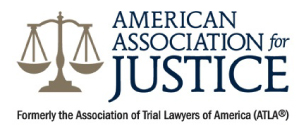Negligence by School District in Arizona

Negligence by School District in Arizona: Immune from Liability?
In Show Low Unified School District No. 10 vs Bill Morgan and Carla Morgan, individually, as surviving parents of Mishell Morgan (deceased) and on behalf of the Estate of Mishell Morgan, 1 CA-SA 07-0115 (Arizona App., June 19, 2007), the Arizona Court of Appeals, Division One, took into account the Petitioner’s appeal and request for the Petitioner’s motion for summary judgment to be reconsidered, holding that the motion was not entitled to absolute immunity, per Arizona Revised Statutes section 12-820.01 (2003) against the law suit filed by the Real Parties in Interest. The jurisdiction was accepted, but relief was denied, as special action jurisdiction from the denial of summary judgment is only granted in “exceptional circumstances”.
Brief order of events: Mishell Morgan is the deceased daughter of Bill Morgan and Carla Morgan. Bill and Carla Morgan are the Real Parties in Interest in this case. The Real Parties in Interest initially brought a negligence suit against the Petitioner (the Show Low Unified School District), following Mishell Morgan’s death due to a seizure which Bill and Carla Morgan claimed happened as a result of the school district’s decision to move the aide who had been assigned to work with Mishell Morgan for three years prior.
The Petitioner filed an appeal to request that the court determine whether the Petitioner is entitled to absolute immunity which the court ultimately denied after hearing oral arguments, though jurisdiction was accepted.
Trial court: The Real Parties in Interest, Bill and Carla Morgan, alleged that their daughter, Mishell Morgan, died as a result of negligence on the part of the Petitioner. Bill and Carla Morgan argued that their daughter’s fatal seizure, which happened at the Morgan’s home on a weekend, was the direct result of Mishell’s former aide (for a span of at least three years), Laura Chirumbolo, being transferred out of Mishell’s classroom and being replaced, full time, by another aide (Kelly Spencer) who had only worked with Mishell half the time, prior to her death.
Bill and Carla Morgan stated that they weren’t informed about the school’s decision to replace Mishell’s long-time aide and, after finding out about the change, four days later, objected to the change, expressing concern for their daughter’s health, in a letter to the Petitioner.
The Real Parties in Interest stated that their daughter, Mishell Morgan, died approximately one month after Chirumbolo was transferred out of Mishell’s classroom because Mishell’s seizure disorder was exacerbated by the circumstances of the transfer.
Appeal: The Petitioner’s appeal requested a summary judgment to determine whether it was entitled to absolute immunity, arguing that the Petitioner is entitled to absolute immunity pursuant to A.R.S. § 12-820.01, and referred to Schabel v. Deer Valley Unified Sch. Dist. No. 97, 186 Ariz. 161, 163, 920 P.2d 41, 43 (App. 1996); and Warrington, 187 Ariz. at 251, 928 P.2d at 675.
The Petitioner argued that its decision to transfer Mishell’s original aide, Chirumbolo, out of Mishell’s classroom was a matter of a fundamental government policy in regards to decisions about utilization of limited personnel.
Pursuant to A.R.S. § 12-820.01.A.2; see also Fid. Sec. Life Ins. Co. v. State, 191 Ariz. 222, 225, ¶ 9, 954 P.2d 580, 583 (1998), absolute immunity is afforded to governmental entities from suite for the “exercise of an administrative function involving the determination of fundamental governmental policy.” The Court stated that school districts are protected by A.R.S. § 12-820.01, but only “for certain functions” (Warrington, 187 Ariz. at 252, 928 P.2d at 676).
The Petitioner’s motion for special action relief was denied by the Trial Court, after considering differences between operational level decisions and policy-making decisions (Id. at 166, 920 P.2d at 46).
The Court stated that at the summary judgment stage of the proceedings, determination could not be made “whether the decision to transfer Chirumbolo was a fundamental governmental policy and thus subject to the protection of A.R.S. § 12-820.01.”
The Court’s denial of the Petitioner’s motion stated, “The Court finds that the movement of a teacher from one classroom to another constitutes an administrative decision. However, the Court does not find that such a movement constitutes the exercise of a fundamental government[al] policy. Rather, the Court finds that such a movement is an operational level decision and, thus, is not subject to the immunity protections afforded by A.R.S. § 12-820.01.”
Negligence can cause grave personal injury: if you have been victimized by the negligence of another party call us for a first consultation about your case. Call David Hameroff, attorney, or Martha Morales at 520-792-4700.





